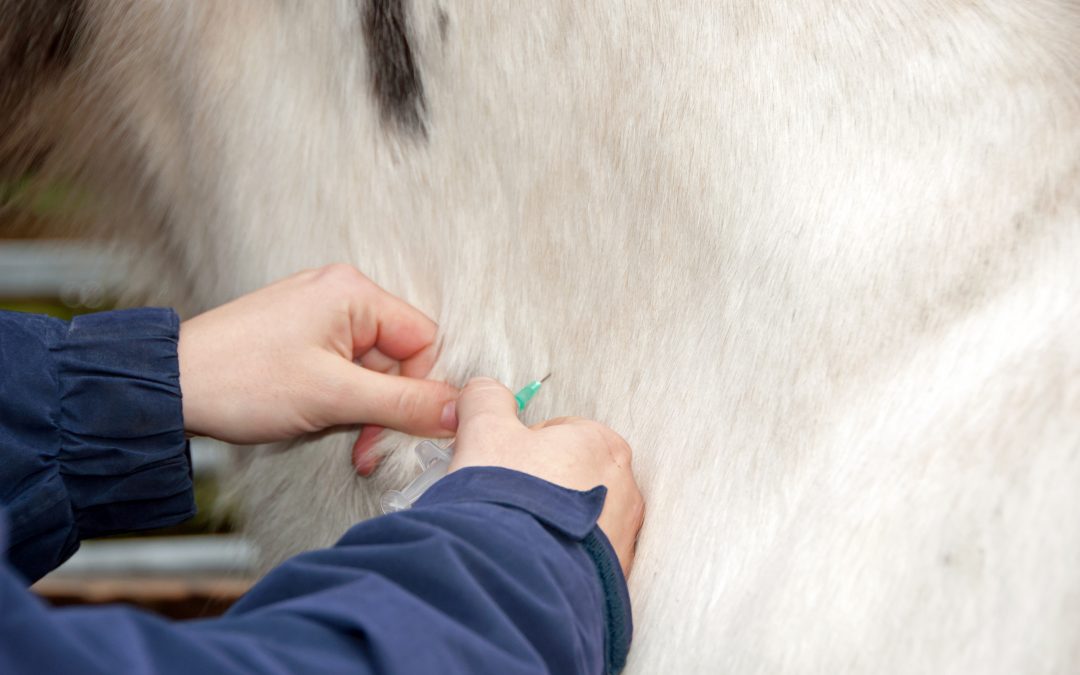In the UK routine vaccines are commonly carried out for both Equine Influenza and Tetanus. These are the main part of your horses vaccination programme. These safeguard them against two of the diseases which can impact both them and (in the case of Equine flu) others in your local horse population.
Everyone will no doubt remember the Equine Flu outbreak back in 2019. This caused a lot of competitions to be postponed, livery yards were placed into quarantine and whilst the death rates were low, it did cause a lot of disruption to everyone’s routine for quite some time. Six monthly vaccines were brought in at this stage as it was shown that the length of immunity whilst it could last 12 months in horses there was a sharp decline in the antigen levels after 6 months. This means that many venues that hold competitions have held onto the 6th month flu vaccinations and horse racing every 9 months.
The vaccination regimes for these diseases are below:
- Influenza is done yearly, tetanus is every 2 years.
Tetanus:
- This is a bacterial infection caused by Clostridium Tetani.
- It results in clinical signs of severe muscle “spasm” and the animal cannot move facial muscles, skeletal muscles etc.
- To an owner this can appear as though the horse is struggling to eat, walking with a peg legged motion, hunched over back…..
- The bacteria is present endemically in the environment and enters the body through wounds of any size and depth.
- It is very difficult to treat and normally results in death/euthanasia even with hospitalisation.
Equine Influenza:
- Equine Influenza is a viral respiratory disease. It is spread easily amongst the equine population.
- Clinical signs include, temperature, sore throat with/without cough, nasal discharge, loss of appetite and lethargy.
- It results in serious immuno-suppression and allows secondary infections and can result in death in severe cases.
- The virus adapts regularly which is why routine vaccination is so important in the prevention of the disease as the vaccine is also updated to cover the most recent strains.
Competitions and certain venues have more regular vaccination requirements of 6 month boosters to ensure most up to date cover.
Additional vaccines:
- EHV – Equine Herpes 1+4 vaccine is often required when sending your mare to stud to cover for this venereal disease.
- Stallions are often not tested as when swabbed they can test positive.
- Strangles vaccine – this is a small injection into the inside of the upper lip.
- This does NOT stop your horse/pony getting strangles but does minimise the clinical signs. However if you were to move yards and were required to have an ELIZA blood sample taken to check for antigen presence you would test positive even if your horse/pony does not actively have strangles.

